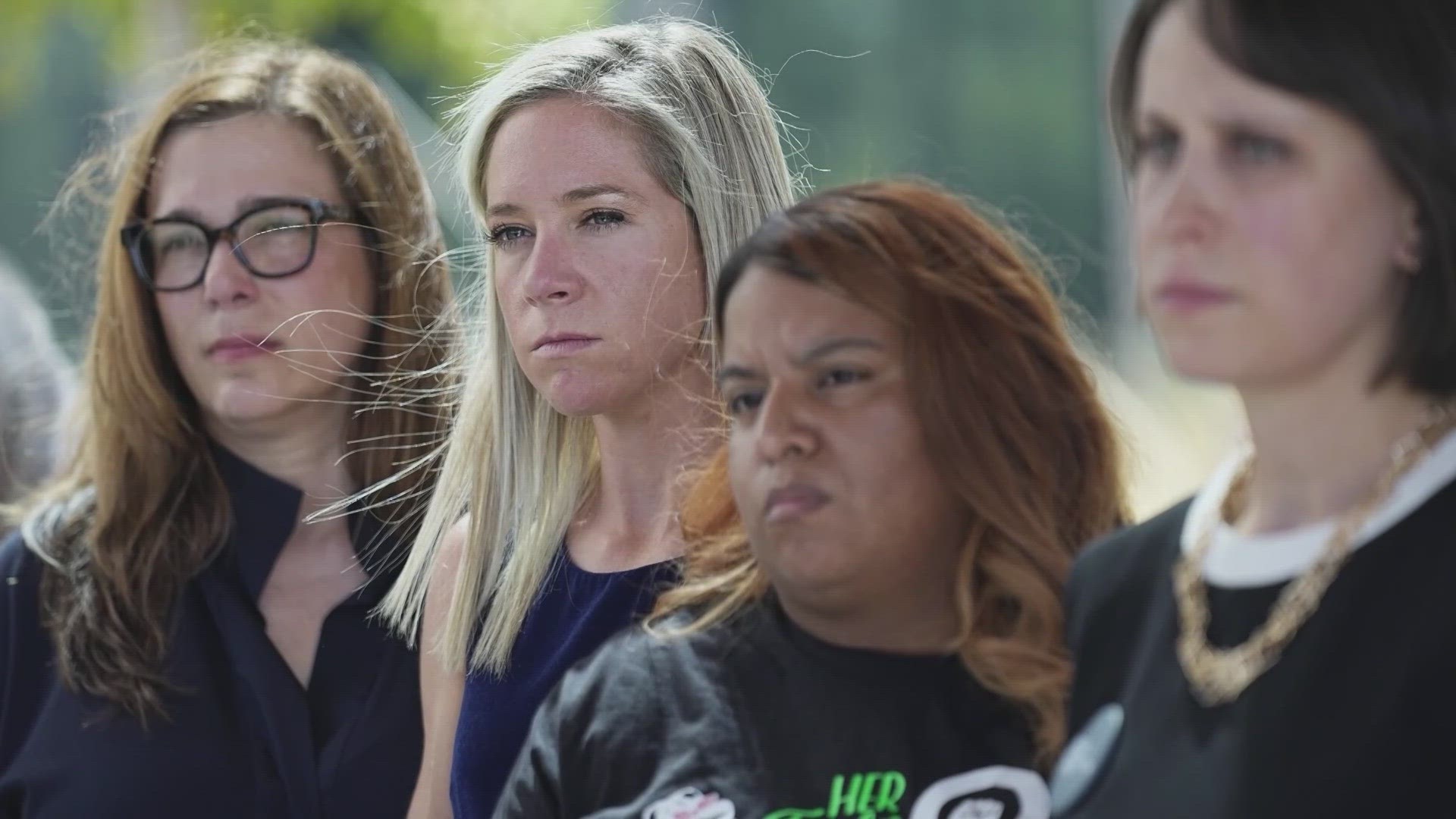AUSTIN, Texas — The State of Texas has appealed the ruling of a Travis County judge who blocked a number of Texas’ abortion bans as they apply to dangerous pregnancy complications.
In Texas state court, a ruling is automatically stayed as soon as it is appealed, meaning the temporary ban has now been stayed.
The ruling, issued Friday evening, stated that doctors cannot be punished for providing those procedures to pregnant people with certain complications. Judge Jessica Mangrum stated in her opinion that doctors cannot be prosecuted for using their own "good faith judgement."
Mangrum's opinion reads:
“The Court finds that physical medical conditions include, at a minimum: a physical medical condition or complication of pregnancy that poses a risk of infection, or otherwise makes continuing a pregnancy unsafe for the pregnant person; a physical medical condition that is exacerbated by pregnancy, cannot be effectively treated during pregnancy, or requires recurrent invasive intervention; and/or a fetal condition where the fetus is unlikely to survive the pregnancy and sustain life after birth. The Court finds that any official’s enforcement of Texas’s abortion bans against any physician who provides an abortion to a pregnant person who, in the physician’s good faith judgment, has a physical emergent medical condition would be inconsistent with the medical exception to Texas’s abortion bans...”
The case came after confusion arose regarding what conditions qualified as “medical emergencies” under Texas’ abortion bans. Mangrum ruled that the women who presented the case should have been given abortions and denied the State’s motion to dismiss.
Friday's ruling also rendered Senate Bill 8, a law passed in 2021 that allows a citizen-enforced abortion ban, unconstitutional.
The Office of the Texas Attorney General filed an appeal of the ruling on Saturday, which will bring the trial in front of the Texas Supreme Court.
The AG's Office subsequently released the following statement on its appeal:
"Protecting the health of mothers and babies is of paramount importance to the people of Texas, a moral principle enshrined in the law which states that an abortion may be performed under limited circumstances, such as in the event of “a life-threatening physical condition aggravated by, caused by, or arising from a pregnancy” that places the pregnant woman “at risk of death or poses a serious risk of substantial impairment of a major bodily function unless the abortion is performed or induced.
The OAG will continue to enforce the laws duly enacted by the Texas Legislature and uphold the values of the people of Texas by doing everything in its power to protect mothers and babies."
The judge's ruling followed two days of hearings for the case held in June, where five plaintiffs presented testimony and were cross-examined by the State’s attorneys, who motioned to have the case dismissed.
“Today's ruling should prevent other Texans from suffering the unthinkable trauma our plaintiffs endured. It would be unconscionable for the State of Texas to appeal this ruling. The court has been clear: doctors must be able to provide patients the standard of care in pregnancy complications. That standard of care in certain cases is abortion because it is essential, life-saving healthcare. This decision is a win for Texans with pregnancy complications, however Texas is still denying the right to abortion care for the vast majority of those who seek it,” said Nancy Northup, president and CEO of the Center for Reproductive Rights
“For the first time in a long time, I cried for joy when I heard the news. This is exactly why we did this. This is why we put ourselves through the pain and the trauma over and over again to share our experiences and the harms caused by these awful laws. I have a sense of relief, a sense of hope, and a weight has been lifted. Now people don’t have to be pregnant and scared in Texas anymore. We’re back to relying on doctors and not politicians to help us make the best medical decisions for our bodies and our lives," said Amanda Zurawski, the lead plaintiff in the case.

